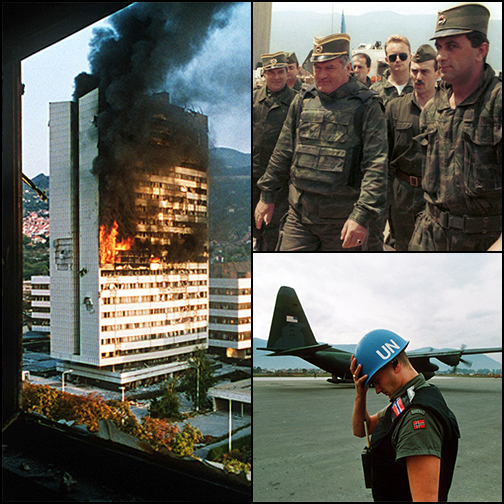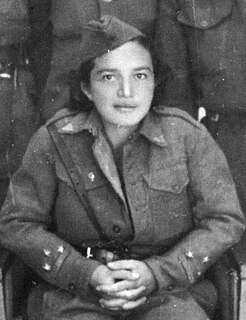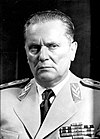Early and personal life
Svetlana Broz was born 7 July 1955 in Belgrade, the capital of Yugoslavia, the youngest child of Žarko Leon Broz [ hr ] (1924–1995), [1] Josip Broz Tito's eldest son, and Zlata Jelinek-Broz from Tuzla. As a teenager, Broz worked as a free-lance journalist from 1970 to 1975; many of her articles and interviews were published in newspapers and magazines. [2]
She graduated from the Belgrade Medical School in 1980 and has served as a cardiologist at the Military Medical Academy from 1981 to 1999, and volunteered her services at the outbreak of the war in Bosnia and Herzegovina in 1992. Her new project is about inter-ethnic marriages entered into during the war. At the outbreak of the war in Bosnia and Herzegovina in 1992 she volunteered to work as a cardiologist in the atrocity zones. Over and over again her patients told her how their survival had been possible only thanks to individuals with the courage to stand up against the ethnic violence perpetrated by members of their own ethnic group, and in January 1993 she began interviewing for the book that describes these human experiences during the Bosnian War. The book was published in Bosnia and Herzegovina in 1999 with a title Dobri ljudi u vremenu zla and in 2003 in the United States under the title Good People in an Evil Time. [3]
In 2000, she moved to Sarajevo, Bosnia and Herzegovina permanently. The reason for this was, as she stated in a 2005 interview for Bosnian daily newspaper Nezavisne novine : "After the NATO intervention, I moved to Sarajevo. Twenty years ago, Belgrade was a European metropolis, a city that I loved a lot. Unfortunately, in a way that city has lost its soul. Sarajevo, despite going through a four-year-long siege of hell, kept its soul intact. I love Bosnia-Herzegovina, I feel as this is my homeland. Last year I even became a citizen."
Career
Broz is currently heading the local branch of the Gardens of the Righteous Worldwide (GARIWO) non-governmental organization. [4] She is the founder of "Education Towards Civil Courage", a series of seminars designed to teach adolescents from all over the Balkans how to stand up to corruption and social and political divisiveness. In 2007, the organization began research and preparation for the foundation of a Center for Civil Courage in Bosnia-Herzegovina.
Since 2001 Broz heads the organization GARIWO (technically a subsidiary of the Italian non-profit body Gardens of the Righteous Worldwide) with its flagship program Education on Civil Courage (She defines civil courage as „The will and ability to disobey, to resist, to oppose and to end by non-violent means the abuse of power by any public authorities, private enterprises or individuals who deliberately neglect their duties to society or illegally use the levers of their political, economic or social power to their own advantage – whether in the media or in the academic, ecclesiastical or family spheres“) designed to combat the prevailing ethnic intolerance, corruption, violence, or any type of discriminatory behavior, and to build a resilient civil society in the West Balkans by inspiring civil courage above all in the young and teaching the day-to-day skills of constructive opposition Svetlana is recognized (and correspondingly reviled and threatened) as an outstanding human rights advocate for all who are unfairly persecuted for their courage to witness against war criminals and war and post-war profiteers. When her colleague and Director of Summer School of Civil Courage, which Svetlana founded and designed, Professor Dusko Kondor was assassinated for his own moral courage on February 22. 2007, Broz launched, in Dusko’s memory, the annual Dusko Kondor Civil Courage Awards. Over the course of the 6 years of its existence, this prestigious award was given to 30 laureates. Laureates are now publicly recognized role models of civil courage. The annual ceremonies, attended last year by over a thousand young people, are well covered by local TV and other media. Coverage of such event always triggers a vigorous debate in society about civil courage, civil rights, discrimination and whole set of other social problems. Since conception of her program of Education on Civil Courage in the West Balkans she was able to deliver over 300 public lectures in 90 towns in B&H attended by over 100.000 citizens; organized 12 eight-day seminars and 7 three-day seminars attended by 450 students from 84 towns in 5 West Balkan countries; organized 10 meetings of students with ambassadors and 26 round tables, and edited 10 thirty-minute TV documentaries in a series “Good People in an Evil Time” broadcast in Serbia, B&H and Montenegro. She has also edited and published 14 books on civil courage translated from different languages. Broz is now working on screen plays and editing documentary films for a TV series called “The Best Among Us” as powerful lessons in ethics and civics for present and future generations in the West Balkans, Europe and beyond. Broz is the author of two books: Good People in an Evil Time – Portraits of Complicity and Resistance in the Bosnian War, translated by Ellen Elias-Bursać, Other Press, New York, 2003 Having What it Takes – Essays on Civil Courage, edited by Tom Butler, Gariwo Sarajevo, 2006., and of many essays published in books such as: The Iraq War and Its Consequences – Thoughts of Nobel Peace Laureates and Eminent Scholars, World Scientific, New Jersey, 2003; Peace Movements Worldwide – Peace Efforts That Work and Why, ed. By Marc Pilisuk and Michael Nagler, Praeger, Santa Barbara, CA, 2011. War and community: Collective experiences in the former Yugoslavia, D. Spini, D.Čorkalo Biruški, G. Elcheroth, Springer, 2013
Her work is internationally recognized for its educational innovation and unique approach. She has lectured at over 100 universities in the USA and Europe including at Harvard the Kennedy School of Government and the Harvard School of Public Health, Yale, Berkeley, UCLA, Stanford, Boston University, Tufts, Boston College, Wellesley, Haverford and Dartmouth, and also in London, Edinburgh, Berlin, Munich, Geneva, Lausanne, Graz, Vienna, Prague, Milan, Torino, Verona, Bologna, Rimini, Warsaw, Amsterdam, The Hague, Goteborg, Marseille, Lillehammer, Oslo, Stockholm, Barcelona and Madrid. Broz is the member of the International Board of the Tufts University 'Institute for Global Leadership, Member of the Editorial Board of the on-line Magazine Duh Bosne/Spirit of Bosnia, President of the Sarajevo City Steering Committee for the Garden of the Righteous, President of the Senate of The First Children’s Embassy in the World, Sarajevo, member of various NGOs in Sarajevo including: The Association of Independent Intellectuals CIRCLE 99, The Sarajevo International Multi-religious and Inter-cultural Center, Education Builds B&H etc. Under the leadership of Broz, her organization is providing internship opportunities for graduate students in social sciences from around the world. Broz has given over 2.000 interviews, participated in hundreds of TV and radio broadcasts and in dozens TV documentary films worldwide (Herald Tribune, New York Times, Boston Globe, NPR, The Times, The Guardian, The Independent, Le Monde, Le Figaro, La Stampa, Io Donna, RAI, El Pais, Gazeta Wyborcza, Russian RTV, Turkish TV, Mainichi Shimbun).















